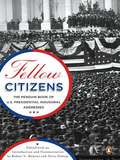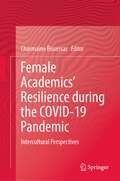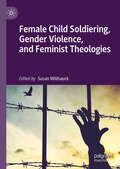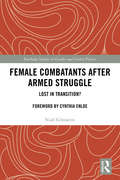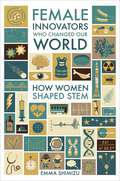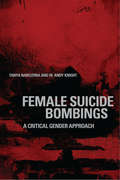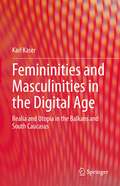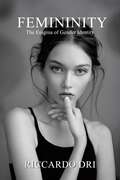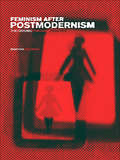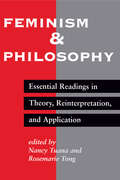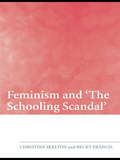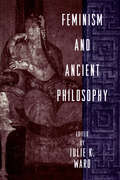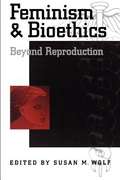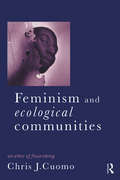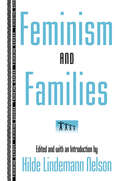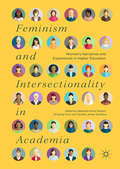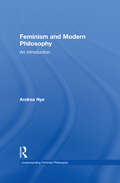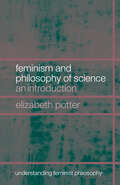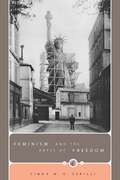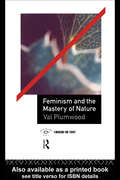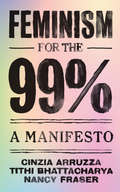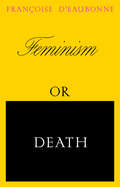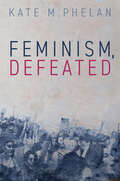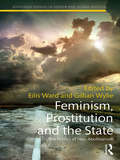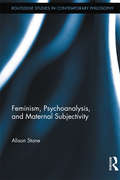- Table View
- List View
Fellow Citizens
by Terry Golway Robert V. ReminiThe complete American presidential inaugural addresses featuring historical background by a National Book Award winner A testament to the power of oratory, this stirring and often surprising collection includes all fifty-five United States presidential inaugural addresses, as well as a general introduction and commentary that provides historical context for each speech. Marking pivotal moments in American history, readers will learn: ? How George Washington came to ad-lib ?So help me, God? at the end of his first inaugural address ? Why Thomas Jefferson?s first inaugural address is considered one of the finest ever delivered ? The historical background behind Franklin D. Roosevelt?s ?The only thing we have to fear is fear itself? and John F. Kennedy?s ?Ask not what your country can do for you, ask what you can do for your country.?
Female Academics’ Resilience during the COVID-19 Pandemic: Intercultural Perspectives
by Charmaine BissessarThis edited book encompasses themes related to resilience during the pandemic with a special focus on what female academics did to hone their resilience. It addresses issues of resilience related to mental health, care and well-being, leading, teaching, and learning. The book offers the reader a glimpse into the academics’ lived experiences and shows how they negotiated and navigated the pandemic. Each academic discusses challenges and triumphs such as wellness, leadership, work-life balance, and workplace burnout.The information contained in the book is significant to different parts of the world such as Guyana, Trinidad, Jamaica, Ireland, England, USA, US Virgin Islands, India, Tanzania, Philippines and China. The authors come from various backgrounds with experiences that add to the multi-cultural and multifaceted nature of resilience. They are leading practitioners who have been involved in face-to-face and online teaching, leading and learning for many years. The book brings with it the experience, enculturation, and wealth of knowledge which is of value to academics, researchers, and policy makers who wish to interrogate and understand the concept of resilience.
Female Child Soldiering, Gender Violence, and Feminist Theologies
by Susan WillhauckThis book examines the phenomenon of female child soldiering from various theological perspectives. It is an interdisciplinary work that brings Christian feminist theologies into dialogue to analyze the complex ethical, geopolitical, social, and theological issues involved in the militarization of girls and women and gender-based violence. With contributions from a range of interdisciplinary and multicultural authors, this book offers reflections and perspectives that coalesce as a comprehensive overview of feminist theological insights into child soldiering.
Female Combatants after Armed Struggle: Lost in Transition? (Routledge Studies in Gender and Global Politics)
by Niall GilmartinThis book stems from a simple ‘feminist curiosity’ that can be succinctly summed up into a single question: what happens to combatant women after the war? Based on in-depth interviews with 40 research participants, mostly former combatants within the Irish Republican Army (IRA), this book offers a critical exploration of republican women and conflict transition in the North of Ireland. Drawing on the feminist theory of a continuum of violence, this book finds that the dichotomous separation of war and peace within conventional approaches represents a gendered fiction. Despite undertaking wartime roles that were empowering, agentic, and subversive, this book finds that the ‘post-conflict moment’ as experienced by female combatants represents not peace and security, but a continuity of gender discrimination, violence, injustice, and insecurity. The experiences and perspectives contained in this book challenge the discursive deployment of terms such as post-conflict, peace, and security, and moreover, shed light on the many forms of post-war activism undertaken by combatant women in pursuit of peace, equality, and security. The book represents an important intervention in the field of gender, political violence, and peace, and more specifically, female combatants and conflict transition. It is analytically significant in its exploration of the ways in which gender operates within non-state military movements emerging from conflict, and will be of interest to students and scholars alike.
Female Innovators Who Changed Our World: How Women Shaped STEM (Trailblazing Women Ser.)
by Emma GreenWe are not all born with equal opportunities. Yet there have been countless of women who have overcome a range of barriers such as prejudice, illness, and personal tragedy to advance our understanding of science, technology, engineering, and mathematics (STEM). They used their knowledge to change the world, and their stories are fascinating. This book offers a concise introduction of the lives of 46 women, taking you into the cultural and social context of the world they lived in. Through their intelligence, courage, and resilience, they used STEM to defy expectations and inspire generations to follow in their footsteps. Some of them invented items we use day-to-day and discovered causes and treatments for epidemics that ostracised whole sections of society, whilst others campaigned for the reproductive rights of women and harnessed mathematics to send people into space and break ciphers. These women are proof that females can and did have a hugely significant role in shaping the world we live in today.
Female Suicide Bombings: A Critical Gender Approach
by Tanya Narozhna W. Andy KnightAs media coverage of terrorism and terroristic acts has increased so too has the discussion about the identities, motives, and gender of the perpetrators. Over the past fifteen years, there have been over 150 reported suicide bombings committed by women around the world. Because of its prominence in media reporting, the phrase "female suicide bomber" has become loaded with gendered notions and assumptions that elicit preconditioned responses in the West. Female Suicide Bombings critically examines and challenges common assumptions of this loaded term. Tanya Narozhna and W. Andy Knight introduce female suicide bombings as a socio-political practice and a product of deeply politicized, gendered representations. Drawing on a combination of feminist and post-colonial approaches as well as terrorism studies literature, the authors seek to transcend ideological divisions in order to enhance our understanding of how gender, power, and academic practices influence our perceptions of female suicide bombings.
Femininities and Masculinities in the Digital Age: Realia and Utopia in the Balkans and South Caucasus
by Karl KaserThis book provides a fresh overview on the debate about the remarkable regression of gender equality in the Balkans and South Caucasus caused by the fall of socialism and by the revitalization of religion in Turkey. Contrary to the prevailing opinion of researchers who state continuous male domination, the book presents strong arguments for an alternative outlook. By contrasting the realia of gender relations with the utopia of new femininities and new masculinities driven by digital visual communication, the book provokingly concludes with the arrival of two utopias: the Marlboro Man – still authoritative but lonely – conquering and refusing family obligations; and with the emergence of a new femininity type – strong and beautiful. As such this book provides a great resource to anthropologists, demographers, sociologists, gender and media researchers and all those interested in feminist issues.
Femininity: The Enigma of Gender Identity
by Riccardo DriIn this thought-provoking book, the author explores the intricate dynamics of gender identity, challenging conventional ideas about what defines being a man or a woman. The narrative underscores the critical distinction between sex—biological differences—
Feminism After Postmodernism?: Theorising Through Practice
by Marysia ZalewskiHighly original and stimulating, this book provides a detailed overview of postmodern feminist theory and practice. Subjects covered include:*the differences between the feminism of the 1970s and contemporary feminism*liberal, radical, socialist and postmodern feminisms*feminist reactions to the growth in reproductive technologies*how feminism informs debates about the subject, epistemology and political action*feminism into the new millennium
Feminism And Philosophy: Essential Readings In Theory, Reinterpretation, And Application (Studies In Social, Political And Legal Philosophy)
by Nancy TuanaThe past twenty years have seen an explosion of work by feminist philosophers and several surveys of this work have documented the richness of the many different ways of doing feminist philosophy. But this major new anthology is the first broad and inclusive selection of the most important work in this field.There are many unanswered questions about the future of feminist philosophy. Which of the many varieties of feminist philosophy will last, and which will fade away? What kinds of accommodations will be possible with mainstream non-feminist philosophy? Which will separate themselves and flourish on their own? To what extent will feminists change the topics philosophers address? To what extent will they change the very way in which philosophy is done?However these questions are answered, it is clear that feminist philosophy is having and will continue to have a major impact on the discipline of philosophy. This volume is the first to allow the scholar, the student, and other interested readers to sample this diverse literature and to ponder these questions for themselves.Organized around nine traditional ?types? of feminist philosophy, Feminism and Philosophy is an imaginatively edited volume that will stimulate readers to explore many new pathways to understanding. It marks a defining moment in feminist philosophy, and it will be an essential text for philosophers and for feminist theorists in many other fields.
Feminism and 'The Schooling Scandal'
by Christine Skelton Becky FrancisFeminism and ‘The Schooling Scandal’ brings together feminist contributions from two generations of educational researchers, evaluating and celebrating the field of gender and education. The focus throughout is on the years of compulsory schooling, examining key concepts in gender and education identified and developed by international thinkers in educational feminism. Topics covered include: social class, ethnicity and sexuality in relation to experiences in school; theories and methodologies for understanding gender; pedagogy and practice in education; and the direction of educational policy and the ‘problem of boys’. Providing a comprehensive overview of contemporary research and theory emerging from ‘second wave’ feminism and assessing their impact on pupils and teachers in today’s schools and classrooms, this book forms essential reading for anyone studying gender and education.
Feminism and Ancient Philosophy
by Julie K. WardAn important volume connecting classical studies with feminism, Feminism and Ancient Philosophy provides an even-handed assessment of the ancient philosophers' discussions of women and explains which ancient views can be fruitful for feminist theorizing today. The papers in this anthology range from classical Greek philosophy through the Hellenistic period, with the predominance of essays focusing on topics such as the relation of reason and the emotions, the nature of emotions and desire, and related issues in moral psychology. The volume contains some new, ground-breaking essays on Plato, Aristotle, and the Stoics, as well as previously published pieces by established scholars like Martha Nussbaum and Julia Annas. It promises to be of interest to an interdisciplinary audience including those working in classics, ancient philosophy, and feminist theory.
Feminism and Bioethics: Beyond Reproduction
by Susan M. WolfBioethics has paid surprisingly little attention to the special problems faced by women and to feminist analyses of current health care issues other than reproduction. Feminism & Bioethics: Beyond Reproduction aims to counterbalance this one-sided approach. A breakthrough volume of original essays authored by leading figures in bioethics and feminist theory, it moves beyond reproduction and nursing, taking bioethics into new territory. The book starts with an investigation of the relationship between feminism and bioethics and introduces different approaches to the problem. Chapters stress the importance of liberal feminism which prefers feminist over feminine analysis, integrate the experience of women of color, draw from the women's self-help movement, and apply feminist standpoint theory. In the second part of the book, contributors view various bioethical problems from a feminist perspective: euthanasia, AIDS, the definition of health, doctor-patient communication, the Human Genome Project, the conduct of biomedical research, and health care reform. They examine the pros and cons of the application of gender and feminism to bioethics. This provocative volume is bound to change and broaden the way bioethicists, students, patients, and the public consider bioethical issues.
Feminism and Ecological Communities: An Ethic Of Flourishing
by Christine CuomoFeminism and Ecological Communities presents a bold and passionate rethinking of the ecofeminist movement. It is one of the first books to acknowledge the importance of postmodern feminist arguments against ecofeminism whilst persuasively preseenting a strong new case for econolocal feminism. Chris J.Cuomo first traces the emergence of ecofeminism from the ecological and feminist movements before clearly discussing the weaknesses of some ecofeminist positions. Exploring the dualisms of nature/culture and masculing/feminine that are the bulwark of many contemporary ecofeminist positions and questioning traditional traditional feminist analyses of gender and caring, Feminism and Ecological Communities asks whether women are essentially closer to nature than men and how we ought to link the oppression of women, people of colour, and other subjugated groups to the degradation of nature. Chris J.Cuomo addresses these key issues by drawing on recent work in feminist ethics as well as teh work of diverse figures such as Aristotle, John Dewey, Donna Haraway adn Maria Lugones. A fascinating feature of the book is the use of the metaphor of the cyborg to highlight the fluidity of the nature/culture distinction and how this can enrich econfeminist ethics and politics. An outstanding new argument for an ecological feminism that links both theory and practice, Feminism and Ecological Communities bravely redraws the ecofeminist map. It will be essential reading for all those interested in gender studies, environmental studies and philosophy.
Feminism and Families (Thinking Gender)
by Hilde Lindemann NelsonA ground-breaking volume of all new essays covering the conjunction of two topics--feminism and families--that, for all their centrality in our culture, have not been adequately examined in light of one another. While the family has suffered feminist neglect, most women are in fact members of families, living their lives within the social context of families, even at a time when the concept of "family" has become bewilderingly unstable. The intersection of families and feminism is thus one in need of philosophical reflection, as a basis both for good public policy and for the ethical relationships of intimate life.
Feminism and Intersectionality in Academia: Women’s Narratives and Experiences in Higher Education
by Stephanie Anne Shelton Jill Ewing Flynn Tanetha Jamay GroslandThis edited volume explores the diversities and complexities of women’s experiences in higher education. Its emphasis on personal narratives provides a forum for topics not typically found in in print, such as mental illness, marital difficulties, and gender identity. The intersectional narratives afford typically disenfranchised women opportunities to share experiences in ways that de-center standard academic writing, while simultaneously making these stories accessible to a range of readers, both inside and outside higher education.
Feminism and Modern Philosophy (Understanding Feminist Philosophy)
by Andrea NyeA feminist approach to the history of modern philosophy reveals new insights into the lives and works of major figures such as Jean-Jacques Rousseau and David Hume, and is crucial to an appreciation of the advent of feminist philosophy. Feminism and Modern Philosophy introduces students to the main thinkers and themes of modern philosophy from different feminist perspectives, and highlights the role of gender in studying classic philosophical texts.This book shows how the important figures in the history of modern philosophy have been reinterpreted by feminist theory, including:* feminist critiques of Descartes' rationalism* Locke's 'state of nature' as it relates to the family* the charges of misogyny levelled against KantIn addition, the book introduces lesser-studied texts and interpretations, such as:* the metaphysics of Leibniz's contemporary, Anne Conway* Annette Baier's recent presentation and defence of HumeFeminism and Modern Philosophy: An Introduction is written in an accessible and lively style, and each chapter ends with a helpful annotated guide to further reading. It will be appropriate for philosophy as well as gender studies courses looking at the development of modern western thought.
Feminism and Philosophy of Science: An Introduction (Understanding Feminist Philosophy)
by Elizabeth PotterReflecting upon the recent growth of interest in feminist ideas of philosophy of science, this book traces the development of the subject within the confines of feminist philosophy. It is designed to introduce the newcomer to the main ideas that form the subject area with a view to equipping students with all the major arguments and standpoints required to understand this burgeoning area of study. Arranged thematically, the book looks at the spectrum of views that have arisen in the debate. It is broadly arranged into sections dealing with concepts such as the notion of value free-science, values, objectivity, point of view and relativism, but also details the many subsidiary ideas that have sprung from these topics.
Feminism and the Abyss of Freedom
by Linda M. ZerilliIn contemporary feminist theory, the problem of feminine subjectivity persistently appears and reappears as the site that grounds all discussion of feminism. In Feminism and the Abyss of Freedom, Linda M. G. Zerilli argues that the persistence of this subject-centered frame severely limits feminists' capacity to think imaginatively about the central problem of feminist theory and practice: a politics concerned with freedom. Offering both a discussion of feminism in its postmodern context and a critique of contemporary theory, Zerilli here challenges feminists to move away from a theory-based approach, which focuses on securing or contesting "women" as an analytic category of feminism, to one rooted in political action and judgment. She revisits the democratic problem of exclusion from participation in common affairs and elaborates a freedom-centered feminism as the political practice of beginning anew, world-building, and judging. In a series of case studies, Zerilli draws on the political thought of Hannah Arendt to articulate a nonsovereign conception of political freedom and to explore a variety of feminist understandings of freedom in the twentieth century, including ones proposed by Judith Butler, Monique Wittig, and the Milan Women's Bookstore Collective. In so doing, Zerilli hopes to retrieve what Arendt called feminism's lost treasure: the original and radical claim to political freedom.
Feminism and the Mastery of Nature (Opening Out: Feminism for Today)
by Val PlumwoodTwo of the most important political movements of the late twentieth century are those of environmentalism and feminism. In this book, Val Plumwood argues that feminist theory has an important opportunity to make a major contribution to the debates in political ecology and environmental philosophy. Feminism and the Mastery of Nature explains the relation between ecofeminism, or ecological feminism, and other feminist theories including radical green theories such as deep ecology. Val Plumwood provides a philosophically informed account of the relation of women and nature, and shows how relating male domination to the domination of nature is important and yet remains a dilemma for women.
Feminism for the 99%: A Manifesto
by Nancy Fraser Cinzia Arruzza Tithi BhattacharyaNamed one of Vogue’s “Most Anticipated Books of 2019” <P><P>This is a manifesto for the 99 percent <P><P>Unaffordable housing, poverty wages, inadequate healthcare, border policing, climate change—these are not what you ordinarily hear feminists talking about. But aren’t they the biggest issues for the vast majority of women around the globe? <P><P>Taking as its inspiration the new wave of feminist militancy that has erupted globally, this manifesto makes a simple but powerful case: feminism shouldn’t start—or stop—with the drive to have women represented at the top of their professions. It must focus on those at the bottom, and fight for the world they deserve. And that means targeting capitalism. Feminism must be anticapitalist, eco-socialist and antiracist.
Feminism or Death: How the Women's Movement Can Save the Planet
by Francoise d'EaubonneThe passionately argued, incendiary French feminist work that first defined &“eco-feminism&”—now available for the first time in English Originally published in French in 1974, radical feminist Francoise d&’Eaubonne surveyed women&’s status around the globe and argued that the stakes of feminist struggle was not about equality but about life and death—for humans and the planet. In this wide-ranging manifesto, d&’Eaubonne first proposed a politics of ecofeminism, the idea that the patriarchal system's claim over women's bodies and the natural world destroys both, and that feminism and environmentalism must bring about a new &“mutation&”—an overthrow of not just male power but the system of power itself. As d&’Eaubonne prophesied, &“the planet placed in the feminine will flourish for all.&” Never before published in English, and translated here by French feminist scholar Ruth Hottell, this edition includes an introduction from scholars of ecology and feminism situating d&’Eaubonne&’s work within current feminist theory, environmental justice organizing, and anticolonial feminism.
Feminism, Defeated
by Kate M. PhelanFeminism has been defeated.Once a politics, feminism is now a philosophy, an epistemology, a method. Once for women, it is now for everyone. Once in pursuit of liberation, it now seeks only inclusion.In Feminism, Defeated, Kate Phelan traces the depoliticization and ultimately, the defeat of feminism. She recovers the second-wave view of men and women as sex-classes, enemies, political kinds, a view more radical than the contemporary view of men and women as social constructs. She also describes how poststructuralism displaced this view and replaced it with another. In this view, the sex/gender binary constructs men and women, and excludes the gender nonconforming.As this view replaced the second-wave one, the injustice of men’s oppression of women was replaced by that of exclusion, and the goal of women’s liberation was replaced by that of inclusion. Thus did feminism become the trans-inclusionary movement as which we now know it, and Phelan shows that this shift was not the progression of feminism; it was the betrayal of it. In this highly original and persuasive study, she argues that the recent emergence of a new gender-critical feminism presents a moment of opportunity to reclaim feminism’s political project.
Feminism, Prostitution and the State: The Politics of Neo-Abolitionism (Routledge Studies in Gender and Global Politics)
by Gillian Wylie Eilis WardThis edited volume focuses on charting the rise of neo-abolitionism and offering a critique of the idea, its logics and consequences. A model of state policy which aims to abolish prostitution through legislation, Neo-abolitionism criminalises the buyer of sex but not the seller. It is currently law in Sweden and other Nordic states and dominates the framing of policy debates in many other Western liberal contexts. Pressure for adoption of this policy has come from radical feminists who understand prostitution and sex trafficking as a form of violence against women. This volume argues that this convergence between radical feminism and state’s interests arises from the emergence of, on the one hand, ‘governance feminism’ which seeks to have its ideals implemented through ‘top-down sovereigntist means’, and on the other hand, state’s interests in legitimising stricter border controls and law enforcement responses in relation to transnational organised criminality, ‘illegal’ migration, and security. Based around a series of country case studies each chapter will explore the politics surrounding the emergence of neo-abolitionism and its trajectory through those polities, whether the paradigm has been adopted, rejected or is still under debate. The volume will be of great interest to students and scholars of Social and Public Policy, Gender and Women’s Studies, Politics and International Relations and Critical Legal Studies/Criminology.
Feminism, Psychoanalysis, and Maternal Subjectivity (Routledge Studies in Contemporary Philosophy)
by Alison StoneIn this book, Alison Stone develops a feminist approach to maternal subjectivity. Stone argues that in the West the self has often been understood in opposition to the maternal body, so that one must separate oneself from the mother and maternal care-givers on whom one depended in childhood to become a self or, in modernity, an autonomous subject. These assumptions make it difficult to be a mother and a subject, an autonomous creator of meaning. Insofar as mothers nonetheless strive to regain their subjectivity when their motherhood seems to have compromised it, theirs cannot be the usual kind of subjectivity premised on separation from the maternal body. Mothers are subjects of a new kind, who generate meanings and acquire agency from their position of re-immersion in the realm of maternal body relations, of bodily intimacy and dependency. Thus Stone interprets maternal subjectivity as a specific form of subjectivity that is continuous with the maternal body. Stone analyzes this form of subjectivity in terms of how the mother typically reproduces with her child her history of bodily relations with her own mother, leading to a distinctive maternal and cyclical form of lived time.
